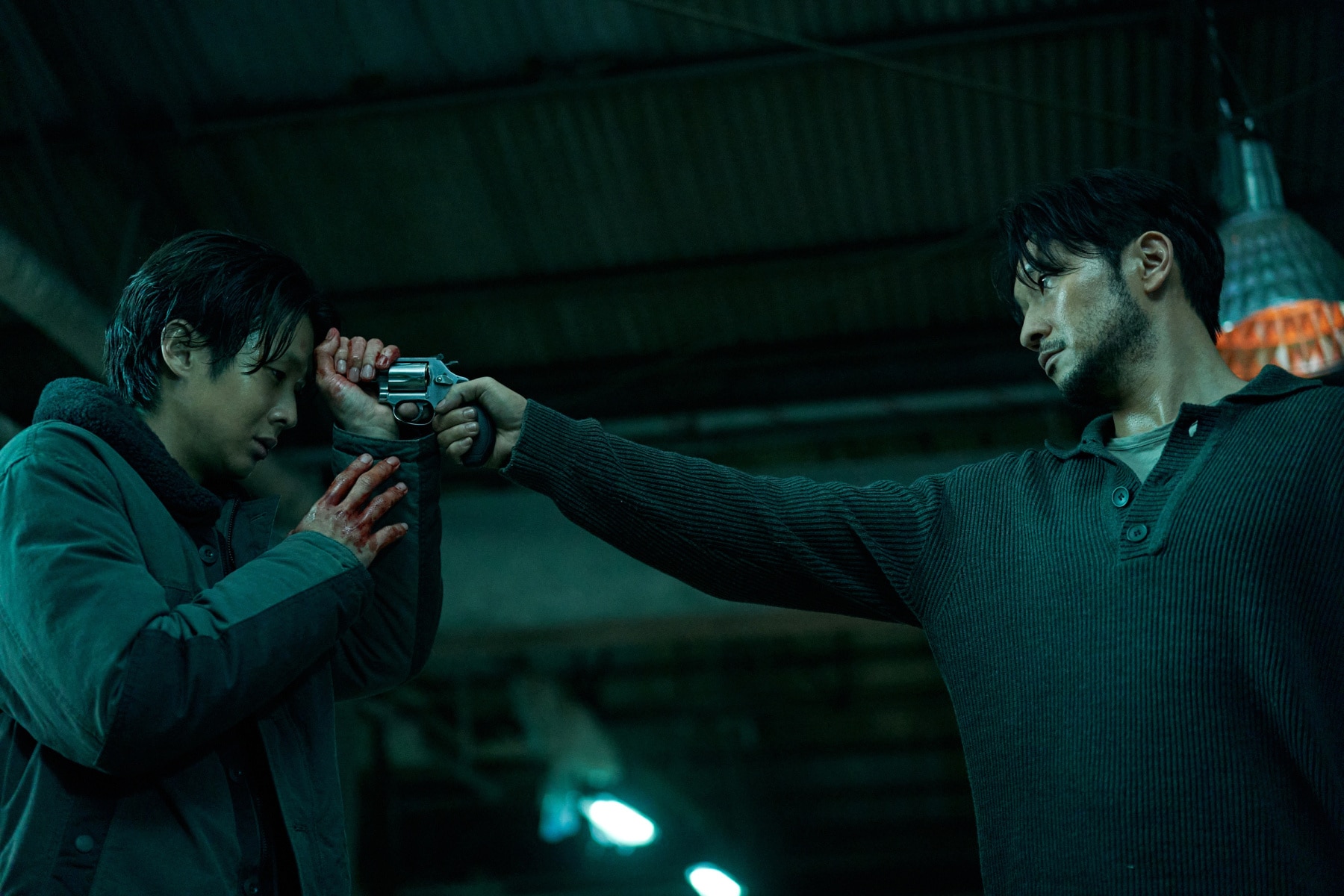An absolutely canonical action series. 'The Killer Paradox' has all the elements that have characterized the genre all its life, without much influence from the current world and its debates. Cops, thieves, murderers, motorcycles, hitmen, money. And like every hero's journey, our protagonist Lee Tang (we saw him in the Oscar-winning 'Parasites') begins with the most bland life possible. He is a young supermarket cashier, accustomed to being treated quite badly, with no success either in social relationships, let alone in love. Of course, his life will turn upside down starting one day, the day he violently kills a drunk on the street who had become violent towards him.
A paranoid part of psycho-thriller starts there: my God, they're going to catch me, I'm having hallucinations seeing the dead man, everyone will know, etc. The dead man turned out to be an international criminal, and Lee Tang has a magnet for detecting evil. The series uses an almost stroboscopic montage to try to convey that anguish to us. But as the story opens up to more characters, all this is lost and we go to a much more classic sequencing: When there are four or five plots at the same time, the staff cannot be so involved. Too bad none of them are the only minimally promising female character.
Two more protagonists appear and a very bad bad guy. One is the classic tormented policeman, intelligent but quiet and hateful in dealings. He wants to be Rust Cohle in 'True Detective', and as far as possible he achieves it in part, being of course the character most likely to gain interest in the series (because, as always, he is the closest to reality ). Another is Roh Bin, a hacker who loves superheroes and detectives, who will try to get Lee Tang to be his Batman. That is, he will try to tell people that “they must die.” Almost nothing. The really bad guy will be the previous Batman, who has gone on a rampage and is killing anyone who steals a lighter. Strong moral convictions in this sadist who ends up being quite charismatic.
The first luminous episodes in 'The Killer Paradox'
With these wicks, the series runs for eight hours, and in a way it manages to improve and gain interest. The last episodes seem like another world if we compare them with the beginning, so it is possible to take a trip from the emotionless neighborhood life to the bowels of organized crime, police corruption and human brutality in general (this does not mean that Let's empathize with anyone who suffers, mind you). We assume that the paradox alluded to by the title is that of killing or not killing those who “deserve it”, a theme explored in other successful productions such as 'Dexter'. Not much space is given to the radical, crazy idea that doing something horrible doesn't mean you have to die. The police officer, furthermore, finds himself in the delicate situation of explaining to these young vigilantes that they should not go around killing, no matter how much almost everything they do suits him. Who watches over the watchers, and all that stuff. In South Korea there is the death penalty, although it has not been applied since the late 1990s.

Full drama between criminal and police in 'The Killer Paradox'
R.C.
Another interesting issue is that the “loser boy who no one pays attention to becomes a ruthless criminal” model is somewhat exploited, a bit of mass-shooter rhetoric that we have also seen in more places. Everything, the plots, the reactions, the cliffhangers, and even the phrases, we have already seen in other films and series. And that's okay, somehow you have to generate the audiovisual comfort zone. The series was born from a webtoon, a type of self-produced digital comic that was gaining success on the internet. Now it seems to be doing very well on Netflix. It's normal: it delivers exactly what it promises.
#39The #paradox #murderer39 #excuses #killing #random

